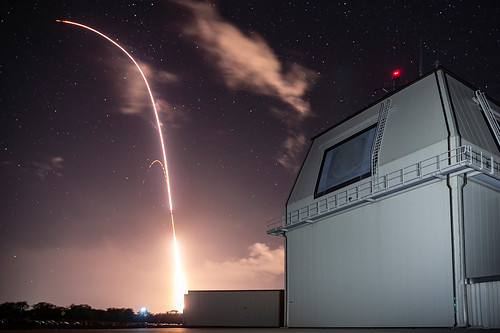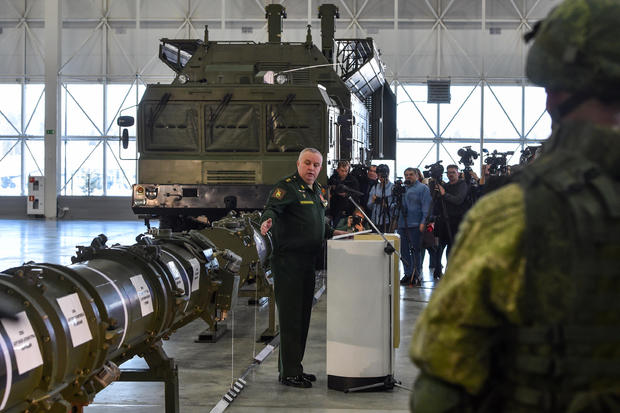RT News
MOSCOW (June 11, 2019) — Russian President Putin recently spoke about the threat of global conflicts on the horizon and his frustration at Washington’s apparent unwillingness to take the possibility seriously. Rick Sanchez reports.
Putin Urged to Keep Control of the “Fiery Serpent”
(June 6, 2019) — Ignoring today’s threats and dangers in the world may lead to a global catastrophe, said President of Russia Vladimir Putin during a meeting with the heads of global news agencies in the framework of SPIEF-2019. The video broadcast of the event leads TASS.
The Russian leader stressed that the need to be able to distinguish potential threats.
“If we don’t keep control of this “fiery serpent” if we release it, God forbid, out of the bottle — this can also lead to a global disaster,” he said.
According to him, the United States after the withdrawal from the Treaty on arms limitation put in the unstable state of international relations in the security sphere. Also negatively affected by the exit of Washington from the Treaty on the elimination of intermediate and shorter-range missiles (INF Treaty), he added.
Meanwhile, Putin assured that Russian weapons are able to protect the country in the long term.
Earlier in the meeting, the President noted that after the creation of nuclear weapons the world is in a state of relative calm.
Russia Says US Military Lied about its Missiles and Plans to Put New Ones Near Border
(July 11, 2019) — A senior Russian general accused the US military of deceiving Moscow about the intentions of missile positions across tense borders in Eastern Europe and of possibly planning to deploy new longer-range weapons in the region.
Major General Andrei Sterlin, head of the Main Operational Directorate of the Russian military’s general staff, told Moscow’s lower house of parliament Thursday that the US may have accelerated preparations to place medium or intermediate-range missiles in Romania after both countries suspended their commitments to the 1987 Intermediate-Range Nuclear Forces (INF) Treaty. The deal banned land-based weapons ranging between 310 and 3,420 miles.
“It is possible that the Pentagon has decided to step up facilities preparations without waiting for legal procedures concerning the INF Treaty to complete,” Sterlin said, arguing that Washington has rebuffed Moscow’s attempts to resolve their dispute, the state-run Tass Russian News Agency reported.
The US has already positioned an advanced missile defense system known as the Aegis Ashore in Romania and planned another one in Poland. Sterlin said Thursday that “as far as these weapons are concerned, the US tried for decades to convince us that its missile defense plans aimed to counter the limited missile threats from North Korea and Iran and would not affect Russia’s deterrence capability.
Today, Washington doesn’t deny that the global missile defense system is targeted against Russia.”

The Missile Defense Agency and US Navy test the Aegis Ashore Missile Defense Test Complex at the Pacific Missile Range Facility at Kauai, Hawaii, December 10, 2018. The Pentagon has installed such a system in Romania and has begun to do so in Poland, two NATO countries that Russia has threatened over their US missile defense systems. (Photo: Flickr.com)
President Donald Trump suspended US obligations to the INF in February, following longstanding accusations that Russia’s Novator 9M729 cruise missile violated the agreement. Moscow has denied this allegation and counterclaimed that Aegis Ashore could be used offensively by the US if needed, thus breaking the deal’s terms, and that the deployment of US military drones could be considered a breach as well.
Following Trump’s suspension, Russian President Vladimir Putin also proposed a withdrawal and legislators in Moscow voted to do so last week. The Russian leader announced a one-sided moratorium on developing the once-banned weapons until he witnessed such developments on the US side and Moscow has claimed to have seen just that.
“We have done everything possible to preserve the Intermediate-Range Nuclear Forces Treaty,” Russian Deputy Foreign Minister Sergei Ryabkov told the lower house of parliament Thursday, according to Tass.
“However, our initiatives to address the concerns on both sides based on mutual transparency were rejected.”
“Now, we are starting to gear up for a potential deployment of US intermediate-range ground missiles,” he added. “The decisions on response measures are being implemented.”
The Russian diplomat met Wednesday with David Hale, US Under Secretary for Political Affairs, but readouts from both sides appeared to show little progress in reducing the renewed tensions between the world’s top two military powers.

Russian Defense Ministry officials show off Russia’s 9M729 cruise missile at the military Patriot Park outside Moscow on January 23. Moscow insisted the range of a missile system that has prompted Washington to withdraw from a key Cold War-era arms treaty is allowed under the agreement.
Putin has for years protested what he and his officials believed to be the Pentagon’s development of a missile defense shield with the support of allies such as Poland and Romania that were part of NATO, a US-led Western military alliance that has inched closer to Russia’s borders in the years since the Cold War.
Poland and Romania are each only a few hundred miles from Russia’s western border.
Last year, Putin revealed a number of state-of-the-art, nuclear-capable weapons systems said to be invulnerable to even the most modern defense systems, expressing frustration that his earlier complaints were ignored.
As this arsenal—including an intercontinental ballistic missile, a hypersonic glide vehicle and an underwater nuclear torpedo, among others—went under testing, Trump declared his intention to make the global missile shield a reality during his Missile Defense Review in January.
The ambitious plan included more domestic anti-missile measures as well as space-based interceptors that have angered both Russia and China, who have unsuccessfully appealed for the US to sign a treaty banning weapons in space. Trump has, however, sought to get Beijing involved in a new INF deal as well as in renewing another landmark arms control agreement, the New Strategic Arms Reduction Treaty (START) that limits the US and Russia’s nuclear arsenals, but China—which has significantly less nuclear weapons—has declined on both accounts.
Posted in accordance with Title 17, Section 107, US Code, for noncommercial, educational purposes